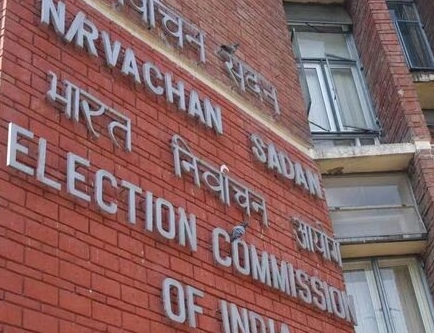Model Code of Conduct
The Model Code of Conduct (MCC) is a set of guidelines issued by the Election Commission of India (EC) to regulate the conduct of political parties and candidates during elections. It comes into force immediately upon the announcement of the election schedule and remains in effect until the results are declared.
The MCC is designed to ensure free and fair elections by maintaining a level playing field for all contestants and preventing the misuse of official machinery for electoral gains.
History and Evolution
The MCC has evolved over time, with its origins dating back to the 1960s. Initially, it was a set of informal guidelines agreed upon by political parties. The Code was issued for the first time in 1971 before the 5th Lok Sabha elections. Since then, it has been issued before every central and state election and revised from time to time. The broad objectives of the code of conduct are to ensure a level playing field for all political parties, prevent conflicts between parties, and ensure law and order in the heat of election season. Still, its primary purpose is to ensure that the ruling party does not misuse or use to its advantage the government machinery for its election campaign purpose. This function of the code is the primary reason for its indisputable legitimacy across all parties. Each party follows the code in the hope that other parties, especially the ruling party, will also follow it and hence no party will gain unfair advantage in the elections. Another reason for the success of the code lies in its restrained nature that the parties find tolerable to follow. In 1991, the EC formally adopted the MCC, and since then, it has been revised and updated periodically to address emerging challenges and incorporate new provisions.
Key Provisions
General Conduct
Political parties and candidates are expected to refrain from making personal attacks, using foul language, or engaging in activities that aggravate existing differences or create mutual hatred among communities. Appeals to caste or communal feelings to secure votes are strictly prohibited.
Meetings and Processions
Parties and candidates must adhere to local laws and obtain necessary permissions for holding public meetings and processions. They should inform the authorities about the time, place, and route of any public gathering to ensure proper arrangements and avoid inconvenience to the general public.
Polling Day Guidelines
Campaigning within 100 meters of polling stations is not allowed. Parties and candidates are prohibited from distributing liquor, bribing, or intimidating voters. They should not transport voters to and from polling stations or use any vehicle for campaigning without proper permission.
Government and Public Officials
Ministers and other government officials are barred from combining official visits with electioneering work. They cannot announce financial grants, lay foundation stones for projects, or make promises of public works during the MCC period. The use of government machinery, vehicles, and personnel for campaigning is strictly prohibited.
Election Manifestos
As per the 2019 addition to the MCC, election manifestos should not contain anything repugnant to the ideals and principles enshrined in the Constitution. Parties must also provide a rationale for the promises made in their manifestos and indicate the means to meet the financial requirements.
Enforcement and Penalties
The MCC is not a statutory document and does not have the force of law. However, certain violations of the MCC may also constitute offences under the Indian Penal Code (IPC) and the Representation of the People Act, 1951. These offences can attract penalties, including fines and imprisonment.
The EC has the power to issue warnings, censure, or even order the withdrawal of recognition of a political party for repeated violations of the MCC. In cases of individual candidates, the EC can issue show-cause notices, file FIRs, or even order the cancellation of their candidature.
Notable Instances and Controversies
Over the years, there have been several instances of MCC violations by political parties and candidates. Some notable cases include:
- In the 2019 Lok Sabha elections, the EC issued a notice to Prime Minister Narendra Modi for his remarks about former Prime Minister Rajiv Gandhi.
- During the 2014 Lok Sabha elections, the EC ordered the removal of billboards and hoardings featuring the then-Chief Minister of Tamil Nadu, J. Jayalalithaa, as they violated the MCC.
- In 2017, the EC censured Delhi Chief Minister Arvind Kejriwal for his remarks about bribery during the Goa Assembly elections.
Criticism and Debate
While the MCC has been largely successful in ensuring a level playing field during elections, it has also faced criticism on various grounds. Some argue that the MCC’s provisions are not comprehensive enough and do not adequately address issues like paid news, fake news, and social media campaigning.
Others point out that the lack of statutory backing for the MCC limits its enforceability and gives rise to instances of selective implementation. There have been calls for giving the MCC a legal status to strengthen its effectiveness and ensure uniform application.
Month: Current Affairs - March, 2024








